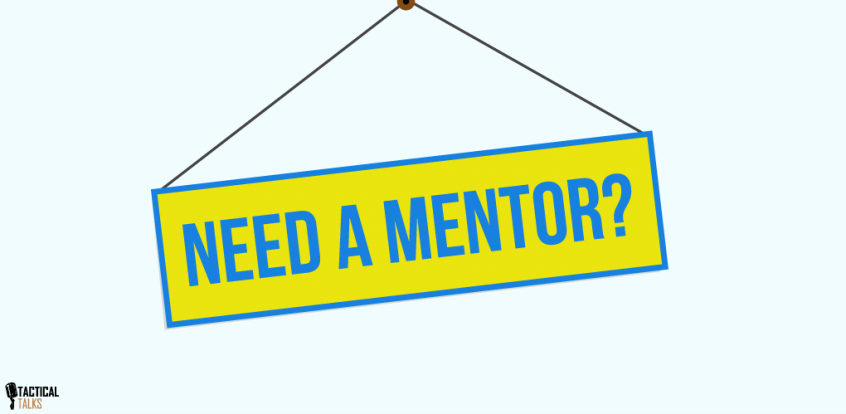2 weeks ago at the Toastmasters Leadership Institute, I sat and watched a keynote speech on mentorship. It was about what it takes to have a successful mentor/mentee relationship.
Mentorship is not a new concept to me, but I had never thought of it from both sides of the equation. After all, it is a two-way relationship. It takes two to tango. Two peas in a pod. Okay I’ll stop.
It was fascinating, and so today, I’m going to share with you a few ideas that I took away from that presentation.
Remember, as I go through these points, bear in mind that they can apply to the pursuit of a coach, or a coach taking on a coachee, or just needing an accountability buddy. The roles are very similar to that of mentoring, if not exactly the same.
Before we start, the speaker, Kent, made a point to differentiate between formal and informal mentoring, so I’ll do likewise.
Informal mentoring is something most of us do in some form. As a parent, a friend, an opinionated a-hole, surely you’ve freely offered your advice in an attempt to help the another individual. Maybe it was helpful, maybe not. But, what’s for certain is that the standards for this type of informal mentoring are low.
Formal mentoring on the other hand is purposeful. It requires commitment and support. When successful, it’s of extremely high quality.
Let’s get on with it, shall we?
Here are some important guidelines to consider when seeking out a mentor, or when deciding whether or not to take on a mentee:
1. Who is this person?
Mentee:
I’m sure this goes without saying, get to know your potential mentor. Talk to them before anything is made official. Get coffee, set up phone call, hire a private investigator to get to the bottom of that cheatin’...Or wait, not that last one. Do get a feel for this other individual, though.
The point is to find out if your personalities mesh. Get to know their background (personal and professional). Get to know their schedule, does it conflict with yours? Find this stuff out ahead of time.
Mentor:
This is more unconventional, but same as above: get to know your potential mentee. Will your style and background knowledge help this person or will it be a waste of time for both of you? Find out early.
2. Know thine goal...
Mentee:
As you set out to look for a mentor, coach, or an accountability buddy, you must have a goal in mind. You’ll save yourself some time by knowing what it is you want to achieve. Get as specific as you possibly can. For example, "I want to write a book about _________” or “I want to get a paid speaking gig at the ABC convention.”
Have the end goal in mind. You and your mentor can work on filling in the in-between steps to get from point A to B, but know thine destination.
Mentor:
As a mentor, it’s not about turning the mentee into YOU. It’s about helping the mentee reach their goal. That’s it. The methods you use to do this will vary, but your goal is to help them reach their goal.
3. Deadline & Parkinson's Law
Mentee:
There is something called Parkinson’s Law which basically states that, if you are given a chunk of time to complete a task, you will use every last second of it.
Say I tell you that you have to read a 200-page book and that you have two months to do it. Parkinson’s Law says you’ll likely use all of that time before finishing it. What if I told you that you had a week? The principle would still apply. The majority of us are procrastinators.
So, in order to use Parkinson’s Law to your advantage, don’t set a deadline that is too comfortable. Set a hard deadline for when you must complete the goal and with all of your might, stick to the deadline.
Mentor:
Discuss the deadline with the mentee. Determine if it’s realistic. Does the mentee plan on moving? Expecting a child? Changing careers? Factor that in when settling on a deadline because those can derail the mission. Once you've worked out a deadline, hold them to it. Do everything you can, short of a gun-to-the-head, to not change the deadline.
4. What type of support is needed?
Mentee:
What type of support do you need or want from the mentor? Are you looking for criticism only? Just encouragement? The ability to reach out and ask questions whenever you need to?
People thrive on different methods of support, and that’s fine. Just know what will be most effective for you and communicate this to your mentor.
Mentor:
Know what your mentee is looking for. If you’re a Drill Sergeant in the Army and the mentee is only looking for encouragement, might not be a good match...or you may need some sensitivity training. Discuss this with the mentee, perhaps you’ll find that you won’t be able to help after all.
5. When and Where?
Mentee:
Determine how and when you will communicate. Phone, text, email? Meet in-person weekly/monthly? Figure this crap out. This sounds pretty straightforward but it can sink the relationship.
If it’s inconsistent it can send a message that there is no seriousness to the relationship. Say adios if that happens. With no commitment, it doesn’t stand a chance. With that said, all that you can control is to make sure YOU take it seriously. Show up. Be on time. Put your game face on. If the mentor can’t match your intensity, get out the classifieds.
Mentor:
Same as above. Especially this, “All you can do is make sure YOU take it seriously. Show up. Be on time. Put your game face on. If the mentee can’t match your intensity, get out the classifieds.”
6. I trust you'll keep your mouth shut
Mentee:
Trust is important. Let each other know that all conversations and shared information will be confidential. This goes back to formal mentorships being held to a higher standard.
An ingredient for self-improvement is being honest about your flaws. If you aren’t honest due to lack of trust or whatever, it’ll be difficult to get the support you need from your mentor.
Don’t betray that trust.
Mentor:
Oh boy...this goes double as the mentor. Trust is a must. The mentee will bloom in a trusting environment. Scout’s honor, pal.
Conclusion
A mentorship can help you achieve your goals. Accountability all by itself is one of the most precious contributions a mentor can provide you with. Our willpower can only take us so far. At times, we all need a push and that means we'll also need someone to deliver that push.
Think about getting yourself a mentor. Think about getting someone you can mentor. I currently mentor a new Toastmasters club and it's one of the most enjoyable things I've ever done in my life. Have fun with it.
Share this post and create a new mentorship!
About this guy...

Howdy! My name is Matt Kramer and I used to suffer excruciating death when speaking in front of a group, now I LOVE it. Overcoming this fear has changed my life and it can change yours, too. My focus is to help you overcome the fear of public speaking so you can build the confidence to go after what you want in life.

